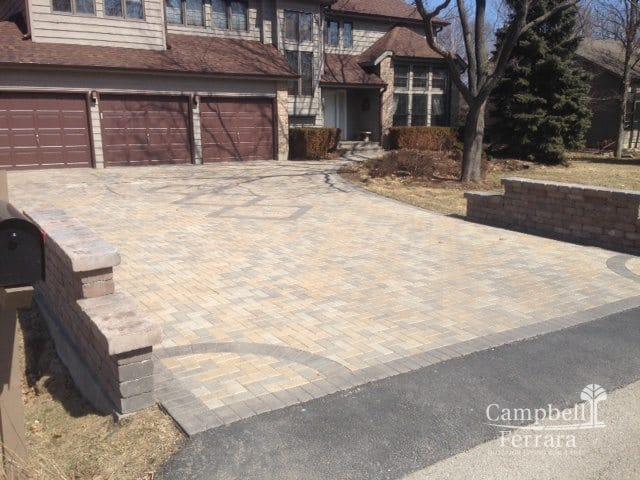
Concrete is the standard material for creating long-lasting, durable driveways, but it is not an Earth-friendly option. The production of it requires a lot of energy. In addition, when the ground is covered with traditional concrete to make a driveway, rainwater can’t seep into the soil. Water accumulates on top of the impermeable layer resulting in potential problems. However, a pavement made out of permeable material is a more earth-friendly option. This just means that product is porous enough to allow liquids or gases to pass through it. Permeable paver components provide a solid driveway combined with the ability to allow rainwater to drain through.
How does runoff affect groundwater?
Many folks rely on groundwater as their main water supply. Melting snow and rain naturally replenish this source, which also nourishes trees and plants. But, partially due to impervious materials being used for developing cities and towns, groundwater is becoming scarce. The use of porous pavement is encouraged by geotechnical engineers and the U.S. Environmental Protection Agency to aid in the management of rainwater runoff.
Why are some of the problems caused by non-permeable services?
Structures such as parking lots, sidewalks, tennis courts, and roofs hinder water from seeping into the soil. Instead, these impenetrable surfaces divert water into streams and sewers carrying toxins like chemicals and oil. These pollutants eventually end up contaminating water supply sources like lakes and reservoirs and threatening wildlife.
Also, excess heat is caused by concrete and asphalt. Both materials soak up sunlight and convert it to heat. This can make summertime in the city quite miserable. When planning to build your new driveway, avoid contributing to all of these problems by choosing the permeable material. There are a large variety of attractive options, some even allow grass to grow through them. Water will drain properly into the ground and you may feel a reduction in heat accumulation in the surrounding dwellings.
What are the advantages of installing a Permeable Paver driveway?
Permeable pavers are innovative products that are both stylish and practical. You can design your driveways how you want with the added perk of being environmentally responsible. PICP or permeable interlocking concrete pavers are installed with an assortment of stone or aggregate layers in a variety of sizes. They filter water and direct it out to underground basins. The system mimics the way soil draws in moisture.
The top of your permeable paver driveway can be completely flat with a contoured stone reservoir created to move water in the direction it needs to flow. With some additional design features, the discarded fluid can be used for a car wash or irrigation.
For homeowners, by paving over grassy areas you will reduce water demand; landscaping will improve aesthetically by eliminating any dry or dead grass; no more standing water for breeding mosquitos; and your permeable surface will outlast any conventional driveway.
Your community as a whole will benefit from a boost in groundwater supplies, a regular base flow, lessened heat effect and a reduction in water use for landscaping. A permeable paver driveway will add value to your property and demonstrate that you care about your community.







I find it amazing that rain water can be collected by my driveway. I had no idea that stone pavers could be so versatile. My wife and I want to change out our old driveway with something new and fresh. I think we might consider doing some kind of paver stone driveway.
This is some great information, and I appreciate your point that pavers are permeable and allow water to drain back into the ground. My husband and I are trying to decide what kind of material we want our driveway to be paved with. We definitely don’t want to contribute to the water contamination problem, so we’ll definitely look into using pavers so it’s a permeable surface. Thanks for the great post!